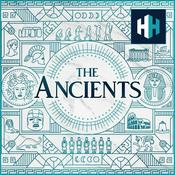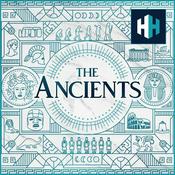234 episódios
- Today Razib talks to Aneil Mallavarapu, a scientist and technology leader based in Austin, Texas, whose career bridges the fields of biochemistry, systems biology, and software engineering. He earned his doctorate in Biochemistry and Cell Biology from the University of California, and has held academic positions at Harvard Medical School, where he contributed to the Department of Systems Biology and developed the "Little b" programming language. Mallavarapu has transitioned from academic research into the tech and venture capital sectors, co-founding ventures such as Precise.ly and DeepDialog, and currently serving as a Managing Partner at Humain Ventures. He remains active in the scientific community through local initiatives like the Austin Science Network.
Most of the conversation centers around Mallavarapu's arguments outlined in his Substack The Case Against Conscious AI - Why AI consciousness is inconsistent with physics. The core of his argument rests on the "Simultaneity Problem" and the "Hard Problem of Physics," which involve non-locality and the memorylessness of artificial intelligence phenomena. Though Mallavarapu believes that artificial intelligence holds great promise, and perhaps even "artificial general intelligence" (AGI) is feasible, he argues that this is a distinct issue from consciousness, which is a property of human minds. Razib also brings up the inverse case: could it be that many organisms that are not particular intelligence, also have consciousness? What does that imply for ethics of practices like eating meat? - On this episode Razib, talks to Richard Hanania, a returning guest to the podcast. Hanania holds a Ph.D. from UCLA, a J.D. from the University of Chicago, and an undergraduate degree from CU Boulder in linguistics. He is a regular contributor to the Boston Globe and UnHerd, and has his own newsletter. Hanania is also the author of The Origins of Woke: Civil Rights Law, Corporate America, and the Triumph of Identity Politics.
Razib and Hanania talk about his new book Kakistocracy: Why Populism Ends in Disaster, and his developing views on populism and immigration. They highlight the rise of populism on the Right, the rejection of cognitive elitism, and the impact of social media on political discourse. Hanania criticizes the far-right's nativism, particularly against Indian immigrants, and the rise of anti-Semitism, both as a feature of low-IQ populism. They also touch on foreign policy, noting the failures of authoritarian regimes like Russia and China, and the potential for democratic systems to prevail.
Hanania brings up cultural differences, particularly in Asia, and the impact of personality traits on success. They talk about the Big Five personality traits, and note that disagreeableness and low neuroticism are linked to professional success, especially in men. Razib also brings up the 2017 James Damore Google memo controversy, highlighting the cultural and political implications down to the present. Hanania reflects on his experiences with cancel culture and the evolving acceptance of diverse viewpoints. They also discuss the role of Substack in promoting free speech and the challenges faced by platforms in maintaining this principle. - On this episode, Razib talks to returning guest, Francis Young, a historian who teaches at Oxford. Young specialises in the history of religion and belief from ancient times to the present day, and provides expert indexes for academic books and translates medieval and early modern Latin. He holds a PhD from Cambridge University and is the author, editor or co-author of over 20 books. On his last visit to the podcast, he discussed his book Pagans in the Early Modern Baltic, an account of the practices and persistence of Baltic paganism down to the 16th-century, the age of the Renaissance and Reformation. Today he discusses his new book, Silence of the Gods: The Untold History of Europe's Last Pagan Peoples.
Razib and Young first discuss what it means to be "pagan" in a European context, first during Classical Antiquity, but more recently in Northern Europe down to the early modern period. Young discusses how it is difficult to understand and define paganism without reference to Christianity, which was a major force in shaping the nature of pagan religion in Northern Europe. Razib asks about the specific nature of northeast Baltic paganism, and in particular, the late survivals of pre-Christian religion among Lithuanians and Estonians, and the differences between the two groups. Young explains his understanding of different religious practices and the various forms of non-Christian practice that persisted among different groups, including mixed "creole" identities. Razib also inquires about the Mari El, a Finnic group in the Urals that might be the only continuously officially pagan people in Europe, as well as evidence Young reports that Estonian peasants were never truly fully Christianized. - On this episode of Unsupervised Learning, Razib again talks to George Washington University archaeologist Eric Cline. The author of 1177 B.C. - The Year Civilization Collapsed and After 1177 B.C. - The Survival of Civilizations, Cline has a new book out, Love, War, and Diplomacy: The Discovery of the Amarna Letters and the Bronze Age World They Revealed. While 1177 B.C. closed with the end of the first global civilization, that of the Eastern Mediterranean at the end of the Bronze Age, and After 1177 B.C. tells the story of those who picked up the pieces, Love, War, and Diplomacy puts the spotlight on the Late Bronze Age at its peak.
Razib and Cline discuss the two major threads in Love, War, and Diplomacy: the decipherment of cuneiform and the emergence of the field of Assyriology, and the diplomatic world of Bronze Age Great Powers. Cline addresses the reality that 19th-century archaeology was not an idealized enterprise, and scholars had to compete with treasure hunters, and negotiate difficult nationalist sensitivities. He also explains how they deciphered cuneiform decades after hieroglyphs, providing an alternative view of the earliest antiquity. The discussion then focuses on the intricate and tense relationship between Egypt, Assyria, the Hittites, and the Mitanni. Cline also highlights the reality that the Amarna Letters also shed light on the bickering between the petty states of the Levant and their relationship to their hegemon, Egypt. - On this episode of Unsupervised Learning Razib talks again with Washington Post columnist and repeat guest Shadi Hamid (listen to previous episodes). A native Pennsylvanian of Egyptian ethnic background and Islamic faith, Hamid completed his Ph.D. in politics at Oxford University. He is co-host of the Wisdom of Crowds podcast and website with Damir Marusic, and now the author of his own Substack and a recent book, The Case For American Power. Hamid is also the author of The Problem of Democracy: America, the Middle East, and the Rise and Fall of an Idea. , Temptations of Power: Islamists & Illiberal Democracy in a New Middle East and Rethinking Political Islam.
Before moving the discussion to The Case For American Power, Razib asks Hamid about his current positioning on the American political landscape with the emergence of the hard-right during the second Trump administration. Hamid admits that during the "woke era" he wasn't sure about his place on the Left as a progressive due to his misgivings with racial identarianism, but with the rise of white nationalism on the Right and the executive decisions of the Trump administration Hamid finds himself more comfortable saying he is a progressive. Racism and the passions unleashed by the Israel-Palestine conflict since 10/7 have made Hamid reevaluate the virtues of some level of wokeness.
Pivoting to foreign policy, Razib and Hamid discuss his new book, and its positioning within a political landscape that ranges from neconservatism, liberal internationalism and isolationism of all sorts. Despite Hamid's misgivings of some aspects of American culture and the nation's past political sins, he asserts (unlike the far Left) that overall America is a force for good, and that it should exercise its power to spread its vision of morality across the world. The Case For American Power is an attempt to articulate a liberal and progressive internationalist vision for 2025, decades after the failed Iraqi intervention. Hamid also addresses the sea-change on the progressive side of American politics when it comes to Israel, admitting he feels much freer to express skepticism or critiques of Israeli policy than he had in previous eras.
Mais podcasts de História
Podcasts em tendência em História
Sobre Razib Khan's Unsupervised Learning
Razib Khan engages a diverse array of thinkers on all topics under the sun. Genetics, history, and politics. See: http://razib.substack.com/
Site de podcastOuça Razib Khan's Unsupervised Learning, projeto Querino e muitos outros podcasts de todo o mundo com o aplicativo o radio.net

Obtenha o aplicativo gratuito radio.net
- Guardar rádios e podcasts favoritos
- Transmissão via Wi-Fi ou Bluetooth
- Carplay & Android Audo compatìvel
- E ainda mais funções
Obtenha o aplicativo gratuito radio.net
- Guardar rádios e podcasts favoritos
- Transmissão via Wi-Fi ou Bluetooth
- Carplay & Android Audo compatìvel
- E ainda mais funções


Razib Khan's Unsupervised Learning
Leia o código,
baixe o aplicativo,
ouça.
baixe o aplicativo,
ouça.





































